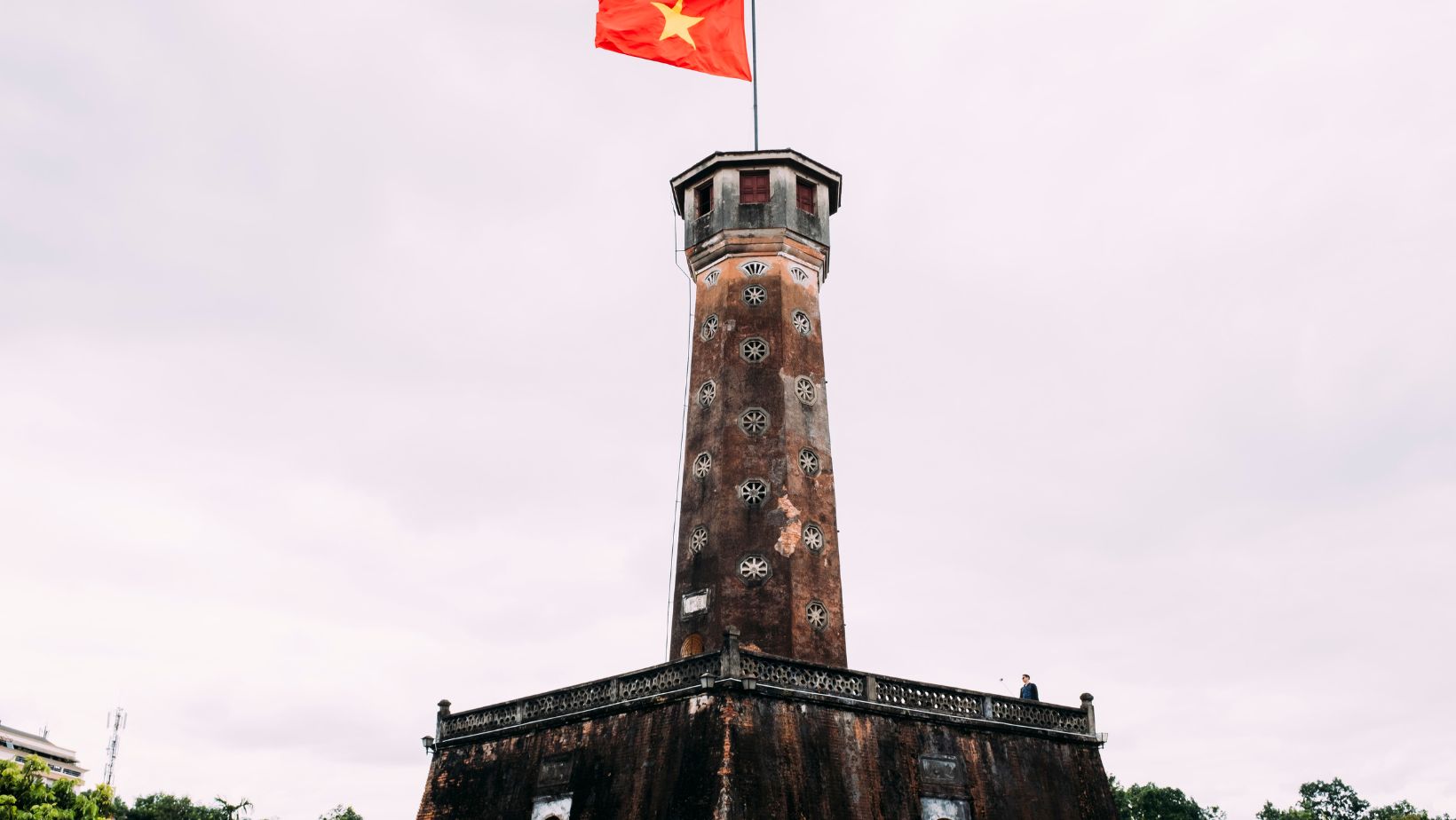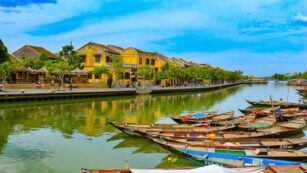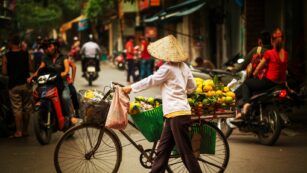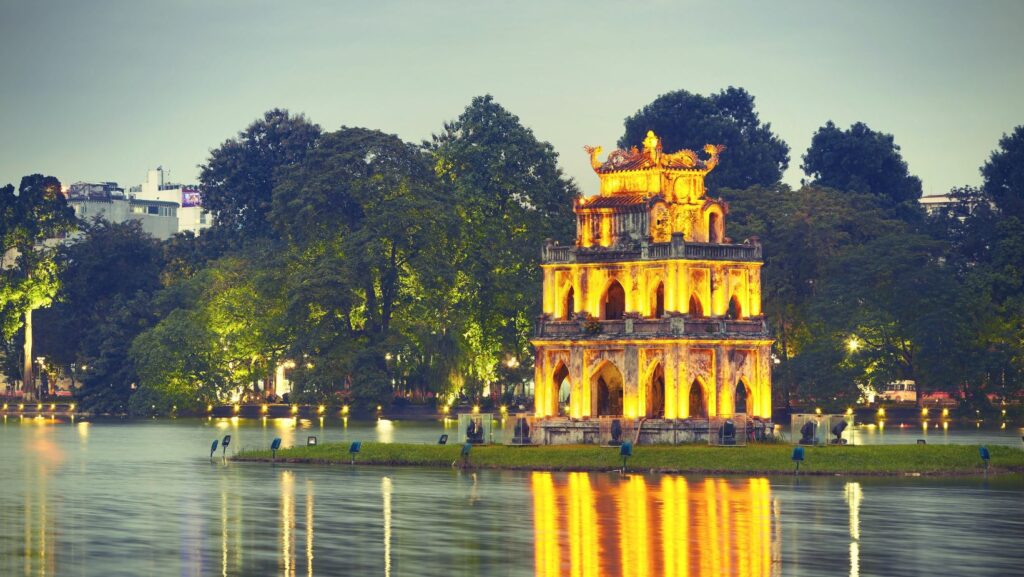
Living in Vietnam offers an intriguing blend of traditional charm and rapid modernization. This Southeast Asian nation, known for its vibrant street markets, lush landscapes, and rich history, has become a sought-after destination not just for travelers but also for expatriates seeking a change in lifestyle. Yet, what’s it really like to call this culturally rich country home?
The Truth About Living in Vietnam
Living in Vietnam offers an intriguing blend of tradition and modernity, with each region presenting a distinct lifestyle and set of experiences. This section delves deeper into the climatic conditions and cultural peculiarities that define everyday life in this vibrant country.
The Climate Experience
 Vietnam’s climate varies significantly from north to south, adding a dynamic layer to the living experience. The northern regions, including Hanoi, experience four distinct seasons: a warm, rainy summer; a cool, wet winter; and transitional autumn and spring periods. Temperatures in winter can drop to around 10°C (50°F), making it markedly cooler compared to other parts of Southeast Asia.
Vietnam’s climate varies significantly from north to south, adding a dynamic layer to the living experience. The northern regions, including Hanoi, experience four distinct seasons: a warm, rainy summer; a cool, wet winter; and transitional autumn and spring periods. Temperatures in winter can drop to around 10°C (50°F), making it markedly cooler compared to other parts of Southeast Asia.
Conversely, southern Vietnam, particularly Ho Chi Minh City, features a tropical climate with only two main seasons: the wet and the dry. The dry season runs from December to April, with high temperatures averaging 28°C (82°F), while the wet season from May to November sees frequent, yet short-lived downpours.
Cultural Quirks and Traditions
Vietnamese culture is steeped in age-old traditions and values, which manifest in daily life through various practices and behaviors. Respect for family and elders plays a central role, influencing social interactions and living arrangements. Many Vietnamese live in multigenerational homes, emphasizing strong familial bonds.
Festivals and holidays, such as Tet (Lunar New Year), the Mid-Autumn Festival, and National Day, are celebrated with enthusiasm across the country. These occasions are characterized by vibrant displays, traditional foods, and a pause in the usual hustle and bustle as families gather to celebrate.
Cost of Living in Vietnam
Accommodation Expenses
 Accommodation costs in Vietnam vary widely depending on the location and type of housing. In major cities like Ho Chi Minh City and Hanoi, a one-bedroom apartment in the city center typically rents for about $500 to $700 per month. If one opts for suburban areas, the cost drops to around $300 to $500 per month. For those considering purchasing property, the average price per square meter in the city center hovers around $2,500, while outside the city center, it’s approximately $1,000. These figures demonstrate the accessibility of living in urban areas without the high costs associated with many other populous cities.
Accommodation costs in Vietnam vary widely depending on the location and type of housing. In major cities like Ho Chi Minh City and Hanoi, a one-bedroom apartment in the city center typically rents for about $500 to $700 per month. If one opts for suburban areas, the cost drops to around $300 to $500 per month. For those considering purchasing property, the average price per square meter in the city center hovers around $2,500, while outside the city center, it’s approximately $1,000. These figures demonstrate the accessibility of living in urban areas without the high costs associated with many other populous cities.
Daily Living Costs: Food, Transport, and Utilities
Living in Vietnam allows for a high quality of life with modest daily expenses. The average meal at an inexpensive restaurant costs about $2 to $3, while a three-course meal for two at a mid-range restaurant is priced around $20. Monthly transportation expenses are also reasonable, with a typical monthly pass for public transport costing about $10. For those using personal vehicles, gasoline stands at around $0.90 per liter.
Utilities, including electricity, heating, cooling, water, and garbage, total about $50 to $70 per month for an 85m² apartment. This affordability in daily expenses enables residents and expatriates to enjoy a comfortable lifestyle while managing their budgets effectively.
Navigating the Job Market
Understanding Employment Sectors
 Key sectors that drive Vietnam’s job market include technology, tourism, and manufacturing. The technology sector, particularly in cities like Ho Chi Minh City and Hanoi, offers roles in software development, IT support, and telecommunications. Tourism flourishes in areas abundant with cultural heritage such as Hue and Hoi An, supporting jobs in hospitality, tour guiding, and service management. Manufacturing remains a cornerstone of Vietnam’s export-driven economy, providing numerous jobs in factories and production facilities, especially in industrial zones.
Key sectors that drive Vietnam’s job market include technology, tourism, and manufacturing. The technology sector, particularly in cities like Ho Chi Minh City and Hanoi, offers roles in software development, IT support, and telecommunications. Tourism flourishes in areas abundant with cultural heritage such as Hue and Hoi An, supporting jobs in hospitality, tour guiding, and service management. Manufacturing remains a cornerstone of Vietnam’s export-driven economy, providing numerous jobs in factories and production facilities, especially in industrial zones.
Job Search Strategies for Expats
Expatriates seeking employment in Vietnam benefit from networking and familiarity with local job search platforms. Leveraging online job portals like VietnamWorks and JobStreet Vietnam can facilitate the job hunt. Participation in community groups and professional networks on platforms like LinkedIn also enhances job search success. Mastery of the Vietnamese language, while not always necessary, increases job prospects, particularly in companies that primarily serve the local population.


